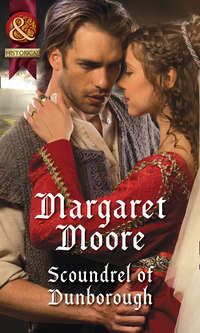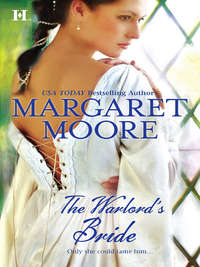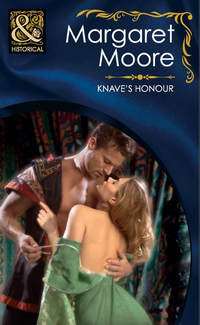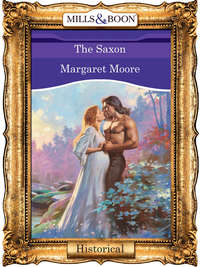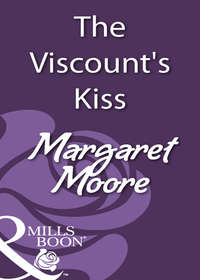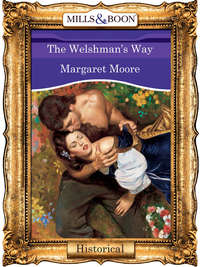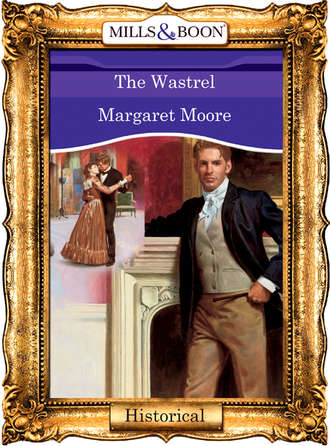
Полная версия
The Wastrel
He tugged the cuff of his jacket into perfect alignment with his shirt. “I was thinking of yours.”
To her surprise, he sounded absolutely sincere. But then, he had sounded the perfect fop in the drawing room. She decided it would be better to settle the price at once, and get away from such a chameleon.
When she met his interrogative gaze, she thought it might be better just to get away. She would run and fight another day. “The hour is late,” she said abruptly.
“Not very,” he said, glancing down the hall with his mocking little smile, as if he knew very well why she was sidling toward the doorway, and found her concern amusing. “You seem less than delighted by the prospect of your aunt rendering me.”
Since he spoke the truth, she did not deign to reply.
“Don’t you want your aunt to paint me?” he asked.
“What shade did you have in mind?” she retorted.
“What color would you suggest?” he countered. “Perhaps something to bring out the color of my eyes?”
His response made Clara look at his eyes, which were a shade of deep blue like the sky in springtime. Then she realized he was laughing at her. She could see it in those merry, mocking, sky blue eyes, and detect it in the slight upturn of his sensual lips. He reminded her of a sardonic satyr.
She was no plaything for his amusement, and it was time he learned that. She wouldn’t have fled from him now if he pulled out a pistol.
Instead, she thought of a reasonable sum for the portrait, and quadrupled it. Then she doubled that. “Four hundred pounds,” she announced gravely.
“Very well.” Lord Mulholland reached into the breast pocket of his jacket with his long, slender fingers whose warmth she well recalled, and drew out his wallet. “Will a check do, or would you prefer the cash?”
In spite of her anger and resolution to remain cool and calm, she gasped. “Surely you...you don’t carry such a sum on your person?”
He simply smiled.
Good heavens, he was a fool. Rich, but a fool!
“Since I have never paid for my portrait before, I will have to trust that this is an honest rate.”
Clara’s gaze faltered. She was ashamed of herself, despite her reasoning. For an instant, honor and a desire to hoodwink him battled in her breast; honor quickly triumphed. “No, Lord Mulholland. It is not,” she said quietly. “I inflated the sum.”
“Why? Did I strike you as an easy mark?” He did not look angry at her admission, which she rather wished he would. He made another calm, inquisitive smile.
She straightened her slim shoulders and gazed at him staunchly. “I thought you were making sport of us.”
“Ah!” His eyes grew serious.
“You would not be the first.”
“I give you my most solemn assurances that I truly want your aunt to do my portrait, and I have no ulterior motive beyond that.”
He was so unmistakably earnest that she felt some of the anxiety flee her body. Nevertheless, she did not relax. She couldn’t, not when she was alone with him.
She nodded stiffly. “Then we shall accept your commission.”
“That makes me very happy,” he said softly as he reached out to take her hand. “I am suddenly all aflame to have my portrait done.” She held her breath as he bent down and kissed her fingers gallantly.
She yanked her hand from his. It had to be the unexpectedness of his action that took her breath away and made her heart race.
“The real price is fifty pounds,” she said huskily, hoping he was in no mood to haggle. She had discovered that some of her aunt’s wealthiest patrons were the ones most unwilling to part with a penny. “Twenty-five before she begins, twenty-five when she is finished.”
His expression mercifully returned to languid normality. “That much?”
“It will be a large picture,” she said quickly. “My aunt does them life size.”
“I see. So I will be certain of getting my money’s worth. Perhaps I could use it as a substitute for myself in the House of Lords when the debates get too boring.” He opened his slender wallet and drew out twenty-five pounds.
Clara took the offered money, then chewed her lip as she considered where she should keep it. Her reticule was too small, being made with the idea that a woman need only carry a delicate lace handkerchief and smelling salts to be prepared for any emergency. After another moment’s consideration, she turned away from Lord Mulholland and swiftly tucked the folded bills into her bodice.
“I envy my money,” he remarked with a gleam in his sparkling eyes, all his indifference gone.
This man was indeed seduction personified! “As well you should, since it is safely where you will never venture,” she answered defensively.
He sighed melodramatically. “Hard-hearted wench!”
He drew out his watch with such a knowing smile that she cursed herself for a fool and a ninny. She was reacting like some green schoolgirl! But he was surely a master of seduction. She must be on her guard.
He glanced at the timepiece. “I perceive that it is time for me to leave, and as much as I would dearly enjoy chatting with you, I have friends awaiting me. If you will excuse me, Miss Wells, I look forward to meeting you again in Lincolnshire.”
She watched him stroll away unconcerned, as though nothing of any import had happened. She felt as if one of the Greek gods had suddenly appeared before her in mortal form and invited her to Olympus.
Most surprising of all, she wanted to go.
Paris leaned back against the cushions of his carriage, oblivious to the sounds of London as Jones took him to White’s.
Paris knew he should have been feeling quite pleased with himself, for he was going to get a considerable sum from old Boffington, and could probably dine out on the tale of this wager for the rest of the year.
However, there could be no denying, even to himself—and Paris Mulholland was a past master at denying any troubling twinges of emotion—that his little interview with the artist’s niece upset him far more than it should. By rights, he should be quite immune to the opinions of others, and especially those of a very serious, disdainful young lady whose social station was so below his own, even if she did proclaim them in a delightful voice, her eyes shining with indignant passion. When was the last time he had seen authentic passion, even of an angry sort? He couldn’t remember—and he shouldn’t be trying to.
What did it matter if her shrewd observation that he was planning to get some amusement from her aunt’s foibles had been correct, at first? She said it had happened before; she should be used to it. Indeed, he told himself, if she were really clever, she would have been exploiting her aunt and uncle’s eccentric ways as a means of living. They could easily be a traveling circus.
He wrapped his cape tighter against the damp chill. No, he didn’t mean that. He knew how it felt to have the adult in one’s life make embarrassing remarks. He, too, would have bristled at such treatment, had he been in her place.
Paris Mulholland suddenly had the distinct sensation that this perfect stranger, this hazel-eyed embodiment of outraged familial loyalty and pride, had not just upset the equanimity of his life. She had managed to touch his heart and set it strumming in understanding sympathy.
He didn’t want his life disturbed, or any sympathetic feelings roused. He didn’t want to feel very much of anything. Life was much safer and so much more pleasant that way.
He wished he had never extended the invitation to her aunt that they all come to Lincolnshire. Perhaps he could undo it...but then, he would miss the pleasure of her guardian’s company.
They were amusing and interesting, and would certainly liven up his dull days. What was so very wrong with taking advantage of that?
Chapter Four
The Wells heard nothing further from the infamous Paris Mulholland during the few days immediately after Lord Pimblett’s ball. Clara decided he had changed his mind about the portrait and told herself she was glad of it. No matter how her aunt fretted—and dear Aunt Aurora could fuet—Clara couldn’t help feeling it would be a blessing if they never saw the man again. It would be awkward to return the money, yet that might be far preferable to dealing with Lord Mulholland for any length of time.
There was also another reason Clara did not wish to spend more time in such company. What might her guardians say or do at Mulholland House? They were so...so enthusiastic about their passions! She was not ashamed of them exactly, but more than once their unbridled remarks had caused Clara to wish to bury her head in the proverbial sand. A man like Paris Mulholland would have stories to tell for years—and he would tell them, too, in that seductive, utterly captivating voice of his.
Then, a fortnight after the Pimbletts’ ball, they received a note from a Mr. Mycroft, Lord Mulholland’s man of business in the city, detailing the travel arrangements and providing the funds. They were to go to Folkingham in Lincolnshire and disembark at the Greyhound Inn, where they would be met by a coachman from Mulholland House who would drive them to the manor.
There was no doubt, from that moment, that they would go.
Although preparing for the journey to Lincolnshire severely taxed Clara’s patience, she dared not protest. Aunt Aurora and Uncle Byron now believed that Lord Paris Mulholland was something of a saint, and they would not listen to any attempt to persuade them otherwise.
Aunt Aurora, who considered her commission to paint Lord Mulholland as the beginning of a new and important phase of her career, simply could not be made to see the troubles this journey entailed. She quite cheerfully entrusted all the arrangements to Clara, with the single exception of the preparation of her painting materials.
Uncle Byron concerned himself with composing a farewell ode to the Thames and outfitting himself with what he considered the proper garb of a country gentleman, which meant tweeds and gaiters. Under no circumstances did he wish to hear that they could not afford new clothes, and Clara finally gave up trying.
The landlady of their shabby and meager lodgings proved to be completely unreasonable. She insisted that if they were going to vacate the rooms, vacate them they must, which meant packing up all their belongings and paying rent for the cellar, where they were graciously allowed to store the few pieces of furniture they owned outright.
There was also the matter of Zeus, the family cat, a large and dignified black feline. Clara wasn’t sure what to do about him, until Aunt Aurora suggested turning him over to the tender mercies of one of her artistic friends, a young woman who kept decidedly odd hours and rarely managed to feed herself, let alone a cat. Clara refused, and finally decided that since Lord Mulholland had invited “the whole household,” he would get the whole household.
Clara’s anxiety over their imminent departure was not assisted by her deep-seated dread that they would all have a terrible time in the country. For one thing, their host, who was said to be completely at the mercy of his whims, might take it into his head not to have his portrait painted at all once they arrived, and they would be left with no lodgings and perhaps having to return the twenty-five pounds, already gone to the purchase of new paints, canvas and Uncle Byron’s clothes.
That was bad enough, but the idea of living in the same house as the handsome and charming Lord Mulholland who could make her knees weak with a look was worse yet. She knew the visit was going to prove a great strain, especially if he exerted himself to seduce her. Not that she thought he could succeed, of course; she knew all the games and stratagems, even if they had not been practiced by such an attractive man. She finally decided she would simply avoid him and hope that Aunt Aurora painted quickly.
At last the day they were to leave for Lincolnshire arrived. Clara greeted it with great trepidation and considerable anxiety, and all too soon found herself wedged inside the coach for the journey north, with her aunt on one side and the basket holding Zeus on her own lap. Her uncle sat across from them with his feet sticking out into the middle of the compartment. He fell into a doze the moment the coach, with several other passengers perched on the top, lurched into motion.
Despite her misgivings, as the coach left the suburbs of London and entered the countryside, Clara found herself pleased and excited to be out of the city. She had forgotten how green and pleasant rural England could be, and how much sweeter smelling. The day was a fine one, and although the road was dusty, it was still better than London.
If only they were not going to the country home of Lord Paris Mulholland!
“Folkingham!” the coachman bellowed as the coach began rattling over the cobblestones of a village street.
Clara woke with a start and a jerk. She had fallen asleep during the last stretch of their journey. Mercifully, this final part of the ride was brief, or Clara doubted that her internal organs would ever be set right again. The jostling also managed to awaken her aunt, whose bonnet was more than slightly askew.
“We’re at Folkingham,” Clara said, grabbing Zeus’s basket with a tighter grip.
“Folkingham?” Aunt Aurora repeated, confused. As she struggled to a more upright position, she looked like a caterpillar making its way out of a cocoon, for she was encumbered by petticoats, a heavy skirt, a cloak and three shawls, having decided there was an unseasonable chill in the air that morning after they had stopped for the night. “Heaven forbid I should have the ague!” she had declared.
She had also wrapped a large scarf round her head, which was topped with a bonnet of her own design generously covered with artificial flowers. It looked more like a centerpiece than a hat. “Folkingham?” she said again.
“Yes, Aunt. We are to meet Lord Mulholland’s carriage here, remember?”
“Oh, indeed. Byron!” Aunt Aurora gave her husband a gentle kick.
“Hail, my nymph!” he muttered sleepily, blinking. He looked not unlike a turtle whose slumber has been disturbed. “Where the devil are we?”
“Folkingham,” Clara reiterated as the coach came to a stop. They felt the conveyance sway as the driver and some of the passengers climbed down. “I daresay this is the yard of the Greyhound Inn.”
She looked out the window at the large, pale orange brick building, and saw a confirming sign of that name. “I wonder if we shall have to wait long for Lord Mulholland’s carriage.”
“It matters not!” Uncle Byron exclaimed. “Such a beautiful day in the heart of a bucolic paradise! It will be a pleasure to wait here!”
He opened the door and stepped forth like a conquering hero surveying his recently acquired domain. Such was his natural grace and bearing that nobody, either from the top of the coach or the stables nearby, made any comment, and for that, Clara was grateful. She put her hand in his outstretched one and stepped down.
Folkingham was a delightful village, small but utterly charming. The large green was surrounded by prosperous-looking houses, and the contented bleating of sheep reached them from the surrounding low hills.
Then Clara noticed several poorly dressed people being handed a small loaf of bread by a couple, neatly and plainly dressed and standing behind a table upon which other loaves were piled. The ragged wanderers gratefully accepted this apparent gift. Munching on their bread, they trudged toward the southern end of town.
Looking their way, to the south and between the houses, Clara saw a tall, all-too-familiar wall. Either it was a workhouse or a prison. She surmised the tattered and threadbare group were on their way to visit the inmates, and those two kind souls were doing their best to relieve some of their poverty.
Clara sighed. Even here, poverty and want reared its ugly head. Perhaps she had been foolish to think it would be otherwise.
“Ah, Arcadian delights abound!” Aunt Aurora cried as she grappled her way down from the carriage, quite oblivious to the straggling walkers. Unfortunately, her appearance seemed to unleash the impertinent snickers of the other passengers.
“The horses’ll eat that hat!” one wag called out.
Her aunt didn’t seem to hear the comment as she happily surveyed the street and green. “How absolutely delightful! How picturesque! How truly rustic!” she enthused.
“Indeed, my Ceres!” Then Uncle Byron realized he had stepped into something he should not have, wrinkled his nose in distaste, scraped his boot on the wheel rim and held out his arm for his wife to take, all his actions accompanied by hoots of laughter from the other passengers of the coach.
Clara flushed to the roots of her hair, straightened her shoulders and tightened her grip on Zeus’s basket as she tried to lift her fast-muddying skirts a little higher. She, wearing a very severe, plain traveling gown of dark brown, and a most demure bonnet, feared no censure from anyone regarding her clothing. She glanced over her shoulder and gave the passengers a black, chastising look. She had been practicing that look for many years now, and had it to such an art that it was far more effective than any mere words could have been. Not surprisingly, the rabble fell silent.
“Come, Clara!” her aunt said, grabbing Clara’s arm and strolling toward the inn.
With Zeus’s basket bumping against her leg, Clara allowed herself to be thus escorted, Uncle Byron following majestically behind.
The inside of the Greyhound Inn was dim, the oak wainscoting dark and the rest of the walls and ceiling smoke stained.
A middle-aged man in spotless blue livery and hat in hand approached them, his gaze fastened on Aunt Aurora’s distinctive bonnet. “Mrs. Wells?” he asked, making a small bow.
“Yes,” Aunt Aurora replied.
“I’m from Mulholland House, Mrs. Wells. I was sent to bring you in the carriage.”
“Just as Lord Mulholland promised!” Aunt Aurora cried triumphantly.
Clara did not point out that if Lord Mulholland had not sent his carriage, they would have had few alternative means of getting to his estate.
“Byron., my own!” Aunt Aurora said to her husband. “See here! This is the driver to take us to Mulholland House.”
Uncle Byron regally nodded his understanding.
“It’s not a long drive,” the driver said deferentially. “Perhaps you’d care to refresh yourself first?”
“A simple drink of spring water, a crust of bread and the delightful air of the countryside will be enough for me,” Uncle Byron announced. “Under yon towering oak on the charming village green would be the perfect spot for an alfresco repast, don’t you agree, my dear?”
Clara had an instant vision of the spectacle of her aunt and uncle lunching on the village green. “It is the middle of the afternoon,” she pointed out. “I think it would be better if we were to get to Mulholland House without further delay.”
The innkeeper’s rosy-cheeked wife appeared. “Ale, sir? Coffee, ladies?” she asked with a pleasant smile.
“Ah, salve, prophetess!” Uncle Byron declared. “Ale, indeed—something smooth and dark. And tea for the ladies.”
“I don’t believe there will be time before we must be on our way,” Clara said firmly. “Thank you all the same.”
“You’re going to Mulholland House?” the innkeeper’s wife inquired cordially. “Ah, a lovely place!”
Before Clara could steer Aunt Aurora outside, her aunt said, “Who are all those poor unfortunates on the other side of the green?” Proving that she had, perhaps, not been as oblivious to the other attributes of Folkingham as Clara had assumed.
“Visiting the House of Correction, ma’am,” the woman replied cheerfully.
Aunt Aurora was horrified. “A jail? Dear me! A jail! Aren’t you afraid to sleep in your bed at night?”
Clara gave her aunt a fierce look. Supposing the woman was — it didn’t do to remind her.
“Oh, no. It’s not that kind of jail, really. Mostly vagrants, disorderlies.” The woman lifted her chin with a touch of pride. “Takes them from all of Kesteven, they does.”
“I suppose the building keeps them warm and dry,” Clara offered doubtfully.
Uncle Byron shielded his eyes with his hand and sighed loudly. “Deprived of the open air, shut up in a dungeon! It is monstrous! It is cruel!”
“Don’t upset yourself, my own!” Aunt Aurora cried, putting her arms around him and laying her forehead on his shoulder.
The driver and innkeeper’s wife exchanged looks over Aunt Aurora and Uncle Byron’s heads. “I believe I heard his lordship’s going to wait tea for you,” the driver murmured.
“There, you see!” Clara said with some desperation. “We had best be on our way.”
“Very well, my good man,” Uncle Byron said, suddenly brisk. “You will find our baggage on the coach, clearly marked.”
Clara thought of the trunks her aunt had decorated in her own inimitable way one afternoon and decided the driver would have no trouble deciding which articles of baggage were theirs. Not many traveling bags would have pictures of scenes from the Arabian Nights on them. Nevertheless, Clara thought being outside would be preferable to staying inside the inn, so she said, “I will show you which ones they are. There is also an easel and a large package of canvases.”
The driver nodded and led the way outside. The coachman was seeing to the changing of the horses, and some of the passengers milled about in the yard. Clara ignored their speculative looks as she showed the driver the appropriate baggage, then followed him to Lord Mulholland’s gleaming black landau that was at the far side of the yard. A pair of very fine horses had their noses in feed bags.
The driver glanced at her as he loaded the largest piece of baggage. “Quite a pair, those two, miss.”
“My aunt is an artist and my uncle is a poet,” Clara explained matter-of-factly. “They are both very... emotional.”
The driver chuckled companionably. “Oh, we’ve had lots of emotional people at Mulholland House,” he said. “And some were just plain crazy, if you ask me.”
Clara wondered peevishly which category the driver thought Aunt Aurora and Uncle Byron would occupy. Perhaps Lord Mulholland didn’t invite people to his country home only for his own amusement; perhaps he tried to keep his servants laughing, too. She should have refused the invitation, and let Aunt Aurora complain....
“Our dear mistress, the late Lady Mulholland, that was, liked lots o’ different sorts of people,” the driver continued, chuckling. “Her son’s just the same. Why, one time, this Italian count we had a’ stayin’ here — walked about in somethin’ looked like a baby’s nappy most o’ the time. Been to India or some such.” The driver reached down for the canvases. “’Nother time, these singers came. Sounded like a bunch of cats in a bag, we all thought.” He sighed for happy days gone by. “There, all stowed. We can go now.”
At least Aunt Aurora and Uncle Byron wouldn’t be the most unusual people to stay at Mulholland House, Clara thought as she nodded absently. Nevertheless, her dread was not lessened by that notion. If anything, the closer she got to Mulholland House, the tenser she became.
She reminded herself that she would simply evade the sleek and seductive Lord Mulholland. The painting would be done soon, and then they would be gone. “I shall fetch my aunt and uncle,” she said.
As she made her way toward the inn, the coach, with its passengers restored, rattled on its way. Clara was not sorry to see it, or its noisy passengers, leave.
Uncle Byron spotted Clara in the doorway and sprang to his feet. “Come, my dear!” he called to his wife. “Our chariot awaits!”
Chapter Five
Paris sat in his study in a large, comfortable wing chair, with his dog, Jupiter, at his feet. The yellow-haired beast of dubious parentage lay as still as one of the statues in the garden as he slumbered. His master was likewise motionless as he deciphered two letters, one from Tommy Taddington and the other from Reverend Jonas Clark, both of whom had been Paris’s friends at Oxford. Tommy’s letter informed Paris that Tommy was once again experiencing familial troubles, and unless he heard otherwise from Paris, would arrive sooner than planned. Jonas, to whom Paris was gladly giving the living in one of the nearby parishes, was expected to arrive at Mulholland House shortly, there to stay until the vicarage of St. Andrew’s had been repaired and prepared for the new pastor.




